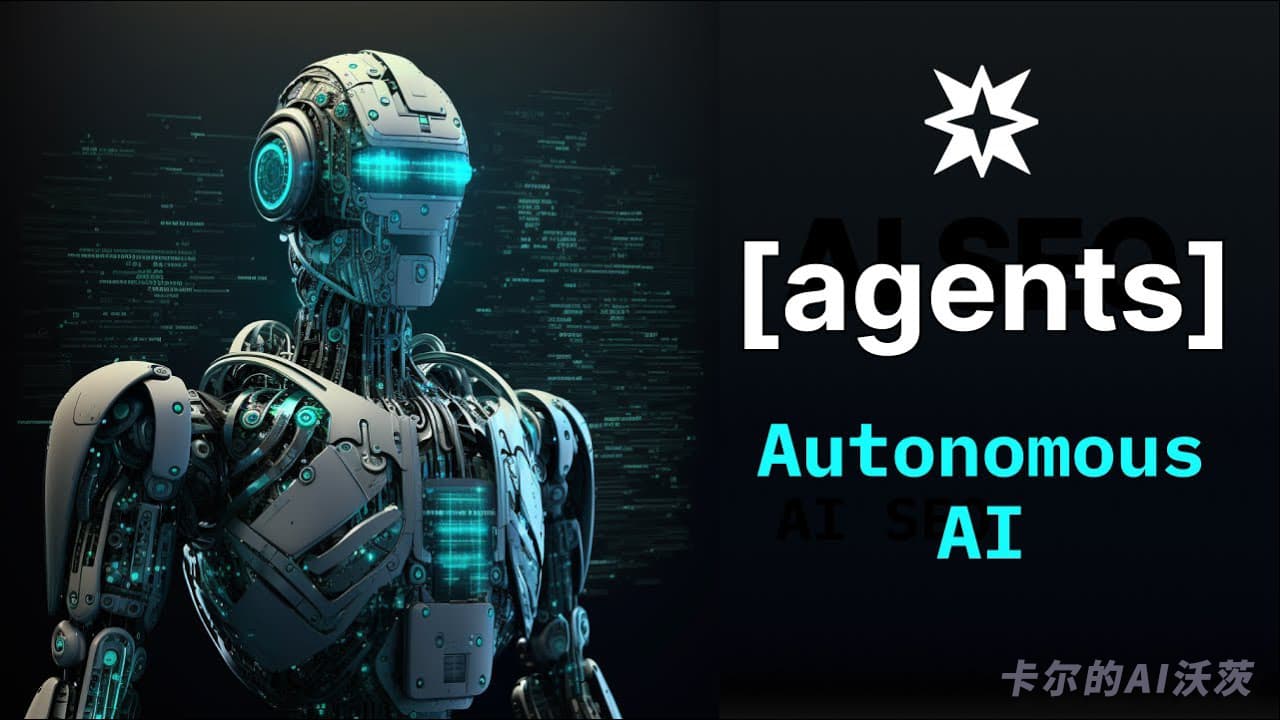🟢 Exploring the Future with AI Agents
OpenAI has released ChatGPT, a groundbreaking product, often compared to the "iPhone" in its field. However, OpenAI isn't stopping there. They aspire to become the Apple of the AI era. The previous ChatGPT plugins garnered significant attention, being referred to as the ChatGPT App Store moment. Nevertheless, the impact of these plugins was limited compared to ChatGPT. In contrast, Agents can have a more profound impact, genuinely reshaping existing application scenarios. Integrating LLM (Large Language Model), memory, planning skills, and tool usage, Agents present a broader and richer imagination space. It's understandable why OpenAI is now focusing on Agents.

🎉 Before you start reading, if you're interested in other articles, you can follow us on the welcome page! "Karl's AI Watts" open-source Chinese community to get real-time updates and the latest tutorials 🎉
Challenges
Currently, Agents face several issues, including:
- Limited Context Length: Agents must adapt to limited communication bandwidth, which restricts the effectiveness of historical information, detailed instructions, API call contexts, and responses. Although vector storage and retrieval can provide access to larger knowledge bases, their representation capabilities are not as strong as LLMs.
- Challenges in Long-term Planning and Task Decomposition: Planning and effectively exploring solution spaces in long conversations remain challenging. When unexpected errors occur, LLMs find it difficult to adjust plans, lacking the robustness of humans who continuously learn through trial and error.
- Reliability of Natural Language Interfaces: Current agent systems rely on natural language as the interface between LLMs and external components like memory and tools. However, the reliability of model outputs is questionable since LLMs can produce incorrect formats and occasionally fail to follow instructions. Hence, many agent demonstration codes focus on parsing model outputs.
These issues require ongoing research and improvements to make Agents more stable and efficient in terms of interaction modes, natural language accuracy, and attention windows.
Personal Thoughts
The concept of Agents is not fleeting; they are among the first entities driven by general AI to solve tasks. Over time, with support from more powerful models and tools, they will become increasingly complex.
For instance, imagine a simple customer service Agent that can handle someone's query, iteratively break it down, solve it, and verify the answer. Achieving this goal requires several key conditions:
- Stronger Models: GPT-4 performs well but is still limited in Agent usage scenarios.
- Better Tool Systems: The current API library is lacking for real production scenarios.
- Different Architectures: As models evolve, decomposing goals into subtasks might no longer be the correct design decision, with many methods like working backward from the final state being equally effective.
In my research, I found that AutoGPT performs well in handling some simple and well-defined knowledge tasks but becomes unreliable in more difficult tasks. This unreliability is mainly due to the inherent limitations of GPT-4. I believe these issues cannot be fundamentally solved by more complex prompt techniques alone but may require additional fine-tuning.
How to Connect with People Interested in Agents
- Join our study group. Here, you can share anything about Agents, projects, and opinions.
- Bookmark learnprompt.pro to continue gaining more insights, news, and product ideas related to AI Agents.
We will continuously track the latest progress of Agents. Stay tuned to「卡尔的AI沃茨」🧙